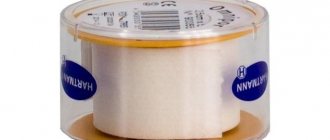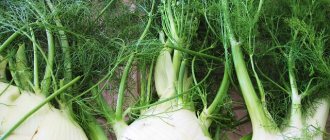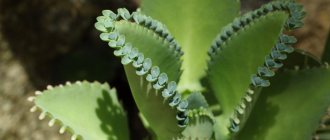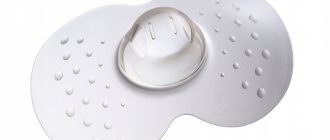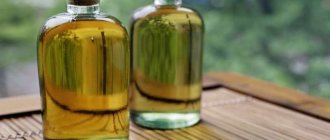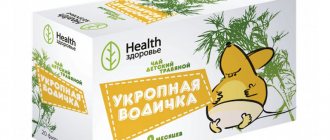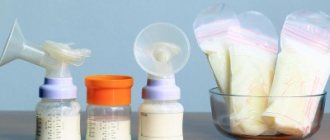The baby’s digestive system continues to “ripen” and develop for several months after birth - this process is almost always accompanied by increased gas formation and colic. There is not the required amount of beneficial bacteria in the intestines, and until the baby’s microflora is normalized, parents are forced to listen to nightly “concerts.” Fennel for newborns is considered an effective folk remedy for tummy problems, as it relieves pain, strengthens the immune system, and has a calming effect on the child.
What is fennel?
The herbaceous plant belongs to the umbrella family - the appearance of the green shoots resembles dill. Thanks to its pleasant anise aroma and spicy-sweet taste, fennel is used in medicine and cooking. All parts of the plant can be eaten in heat-treated or raw form. The fruits contain up to 18% fatty oils, consisting of valuable Omega-6 and Omega-9 acids.
The herbaceous part of the plant contains:
- flavonoids with anti-inflammatory properties;
- ascorbic acid, which improves iron absorption and normalizes hematopoiesis;
- B vitamins involved in many metabolic processes;
- carotene and other antioxidants.
Back in the time of Hippocrates, the plant was successfully used in the treatment of gastrointestinal diseases, and now the benefits of fennel tea for newborns during the period of colic are known.
Fennel and colic: who wins?
Baby colic cannot be called a disease. They do not need to be treated at all, they will slowly go away on their own. Any pediatrician will agree with these words. Pediatrician - yes, but not a tiny one. The newborn miracle cannot yet understand that it is enough to just be patient and wait a little. This is why babies cry so often. A mother who does not sleep at night, spending time at her baby’s crib, is ready to do everything possible and impossible to make her baby’s health condition at least a little easier.
In this case, a huge problem is that such small crumbs cannot be given almost anything that modern pharmacology can offer. This is where the fennel plant will come to the rescue. Let's figure out what it is and how to give it to kids correctly?
Fennel is a plant that belongs to the Apiaceae family. The familiar dill lives in the same family. Even in the times of Avicenna and Hippocrates, who successfully used fennel to cure digestive ailments, this plant enjoyed unprecedented popularity. It can be used both raw and in heat-treated form, and all parts. Fennel has carminative properties, which gives it the ability to relieve colic and bloating in both babies and adults.
Advice to parents! Fennel for newborns is not a prophylactic. There is no need to give it to a baby who does not have colic. In some cases there will be no negative consequences. But in others, there may be some addiction to this product, resulting in the child becoming addicted to this product. The consequences will not be very good: the baby will digest without any problems only if he drinks fennel tea.
What are the benefits of fennel for newborns?
Any parts of the plant contain a large amount of essential oils, so it should not be given fresh to children. The quick effect will not be manifested by a decrease in flatulence, but by irritation of the fragile mucous membrane of the baby’s digestive tract. Application is possible after heat treatment of the product - in the form of decoction or tea. The beneficial properties of fennel for infants are multifaceted:
- the functioning of the nervous system is normalized, the child falls asleep better and calms down faster;
- the body's defenses increase;
- relieves pain and spasms of intestinal smooth muscles during colic;
- food is better absorbed.
Fennel contains:
- fatty acid;
- proteins;
- phosphorus;
- potassium;
- magnesium;
- sodium;
- calcium;
- manganese;
- zinc;
- copper;
- iron;
- vitamins A, C, PP.
The brewed plant prevents intestinal disorders, eliminates the formation and accumulation of gases. Hipp tea for babies with fennel has similar properties, which just needs to be diluted in warm water.
Proper preparation of the drink
In order to make the most of fennel tea for newborns and not harm the baby, you must follow the instructions for brewing the drink and follow the dosage.
If the tea is already in bags or in the form of a dry mixture, then the box usually indicates how to prepare it correctly. Since the seeds of the plant have the greatest healing effect, you can purchase them at the pharmacy and make your own drink from natural raw materials. Basically, two methods are used: making tea and decoction. Parents choose which one is preferable.
Making tea in a bag
Tea
Making tea from seeds:
- Crush 1/2 tsp. seeds in a mortar. This is the best grinding method as it releases the essential oils most effectively. The drink will have a pleasant taste and aroma;
- Pour a glass of slightly cooled boiling water over the seeds (to about 90 degrees);
Important! Water at boiling temperature may slightly reduce the beneficial effect of the herbal drink.
- Leave to brew for 15-20 minutes.
The cooled and strained drink should be given to the baby before feedings: first, a teaspoon, observing the body’s reaction, then carefully increase the dose to 100-150 ml per day.
Making fennel seed tea
Decoction
Recipe for the decoction:
- Crush one teaspoon of seeds in a mortar and pour a glass of boiling water;
- Boil for 2 minutes;
- Leave to brew for 10-15 minutes;
- Strain and after cooling give to the baby. The total amount is 2 to 3 teaspoons per day.
Contraindications to the use of fennel
The benefits of children's tea with fennel have been tested by millions of mothers, but doctors recommend taking moderation so as not to overdo it with the volume of the medicinal plant. The drink should not be given to newborns under 14 days of age until normal intestinal microflora is formed. The baby’s digestive system will quickly get used to the stimulating effect of tea - and will not be able to fully function without the “dietary supplement”.
An infusion of fennel root for newborns was also banned - it is allowed to be introduced into the diet no earlier than 7 months, observing the reaction of the child’s body. Among the strict contraindications for consuming the plant in any form, doctors name:
- diagnosed epilepsy or a tendency to develop this disease;
- individual intolerance to the product, manifested by allergic reactions.
The initial portion of tea should be 3-5 ml. If the baby feels well, there are no redness or itchy rashes on the body, the dosage can be gradually increased to the norm - no more than 10 ml per feeding and up to 50 ml of herbal drink per day.
Important! An allergy may not occur immediately, but after 3-4 days, so after the first serving of tea, it is better for mom to wait before introducing new products into her diet. If a negative reaction occurs, you should stop drinking the drink, even if fennel is used for colic during breastfeeding.
Dill water
Dill water can eliminate flatulence and facilitate the passage of gases.
Dill water copes well with the problems described above in newborns, and is excellent at combating increased gas formation and colic. It is a 0.1% solution of fennel oil.
However, before use, it is worth checking your baby for an allergic reaction to fennel. To do this, before feeding, the baby is given 0.5 teaspoon of dill water, after which a possible allergic reaction is observed.
If the test went well, then you can use 1 tsp. three times a day. If the child resists taking dill water, you can mix it with breast milk or artificial formula. The effect of taking dill water occurs within 10-15 minutes.
How to brew fennel for newborns?
The root and greens of the plant are sold from August to mid-autumn; the dried product is available in pharmacies all year round. When choosing fresh seasoning, you need to pay attention to appearance:
- the root should be elastic, dense, white without dark stripes or dents;
- The green color is bright, juicy, without yellowness.
Only from such a product will you get a healthy drink rich in vitamins. There are several recipes for making fennel tea for newborns - mothers will be able to choose the most suitable one from those offered.
Fresh fennel tea
For preparation you will need a small portion of chopped root:
- 1 tsp. pour 250 ml of boiling water over the fruit.
- Leave for an hour, strain.
The second recipe takes less time:
- Pour 5 g of chopped fennel fruit into 200 ml of boiling water.
- Boil over low heat for about 2 minutes, leave for 10 minutes.
- Cool to a comfortable temperature.
Before use, you need to brew new fennel tea for infants; 15 ml of the drink is enough for one feeding.
Fennel green tea
Both dry and fresh herbs will do:
- 1 tbsp. l. raw materials pour ½ boiling water.
- Leave for no longer than an hour, strain.
The herbal drink can be added to expressed breast milk or formula, or offered to the baby in its pure form.
Fennel seed infusion
Not whole seeds are brewed, but crushed to a powdery state:
- Pour 250 ml of boiling water over a teaspoon of the product.
- Leave for 30 minutes.
- Strain, cool to warm temperature.
Offer your baby a teaspoon of infusion during feeding to relieve colic.
First tea for a newborn - with fennel
Everyone knows that tea with the addition of fennel and dill will improve the functioning of the gastrointestinal tract, remove bloating, irritation, and improve digestion itself. In lactating women, fennel increases the amount of milk. And what are the benefits of tea with fennel for a newborn child? Not only experienced parents, but also beginners know.
If we talk specifically about the benefits of fennel tea for a newborn baby, then many questions may arise here. This tea solves problems well - it will calm the baby’s nervous system and help deal with colic (by the way, fennel “fights” colic much better than other remedies), strengthens the baby’s immune system, which is very important for him, because he is still weak, he we need to grow and strengthen.
Pharmacy products
Modern pharmacology offers industrial children's herbal teas with fennel, the preparation of which takes only a few minutes. The products are produced taking into account the needs of the baby’s body, therefore they do not contain harmful components:
- Humana. The composition includes not only fennel, but also cumin, maltodextrin, and lactose. Tea has a pleasant taste, quenches thirst well, and reduces gas formation. A jar of granules is designed for approximately 50 servings of 100 ml. The drink is recommended for children over 1 month old; attention must be paid to individual intolerance to the ingredients.
- Bebivita. A laconic composition (fennel extract, dextrose) will help eliminate the symptoms of colic, reducing gas formation. Does not contain sugar, preservatives, flavors or dyes. Tea should not be given to children in the first month of life.
- Hipp. Bagged baby tea Hipp with fennel is not intended for newborns, but for infants older than 1 month. There is no milk protein or gluten in the composition - the product is hypoallergenic. A soft and refreshing drink contains only natural extracts. The granulated form of tea is intended for children over 4 months of age.
- Plantex. One of the most popular and budget options, available in packs of 10 sachets. Can be used as a therapeutic or prophylactic remedy for colic. The composition includes fennel extract and oil, dextrose, acacia gum, glucose, lactose. The drink is recommended for use from two weeks of age.
- Grandma's basket. Herbal tea contains extracts of lemon balm, thyme, fennel - the beneficial properties of which are beyond doubt. Allowed for use by infants over 5 months. For newborns, the manufacturer produces a separate line, which contains only fennel. The drink is used to prevent and treat flatulence, regurgitation, and colic.
There is also a product on sale such as dill water, where the main component is the essential oil of the plant.
Types of teas
Today in pharmacies and specialized stores you can find a huge range of such products that can be used for newborns. The main selection criterion is the absence of sugar and various flavoring additives.
The following brands meet this criterion:
- Children's tea Hipp) with fennel for newborns. It contains exclusively fennel seeds. It is very easy to brew, due to the fact that the plant is packaged in bags. This drink is recommended for children from 1 month.
- Herbal tea “Babushkino Lukoshko”. It contains no additional substances other than the fruits of the plant. Children from 1 month of age are allowed to drink this drink. In addition to eliminating colic, the decoction improves appetite and has a mild laxative effect, which is especially important if the child suffers from constipation.
- Children's tea granules Bebivita. It additionally contains dextrose, so it is not advisable to offer such a product to a newborn before a month. It has a mild taste and pleasant aroma, which many children especially like.
- Herbal remedy for colic Humana). Recommended for babies older than 1 month, because it additionally contains cumin, lactose and maltodextrose. It is sold in the form of a homogeneous bulk mixture. If a child is allergic to milk sugar, giving this infusion is not recommended.
How to use fennel for a young mother during lactation?
It has been scientifically proven that drinking fennel tea has a beneficial effect on breast milk production. The plant is famous for its relaxing effects, and internal balance and peace are useful for women during the recovery period after childbirth. Under the influence of natural extracts, a rush of blood occurs to the mammary glands, and spasm in the ducts is neutralized. The beneficial substances contained in the plant are passed through breast milk to the baby, therefore, in this form, fennel can be used for colic in newborns.
This is not the only reason why herbal tea should be included in the diet of a nursing mother:
- Normalization of the nervous system. The plant has a calming effect, helping to cope with stressful situations and depression.
- Restoration of gastrointestinal microflora. Constipation is harmful for a woman during lactation, especially after a cesarean section.
- Strengthening the immune system. Vitamins are fully absorbed, supporting the body's defenses.
Tea does not change the taste of mother's milk, so the baby will not refuse the breast.
To increase lactation, proven recipes will be useful:
- 1 tbsp. l. seeds, pour a glass of boiling water, leave for about 2 hours, strain. Take 2 tbsp. l. decoction before meals.
- Mix 20 g of crushed fennel, dill and fenugreek seeds. Pour 200 ml of boiling water and leave for 2-3 hours. Before use, dilute with warm water in a ratio of 1:3, take 200 ml half an hour before feeding the baby.
Important! When breastfeeding, you should pay attention to its organization. The baby should be fed on demand, not on a schedule, so that the milk supply increases according to “demand”. It is necessary to properly attach the baby to the breast and support night feedings, since prolactin is produced in the pre-dawn hours.
There is not only a line of fennel tea for newborns on sale - manufacturers have taken care of producing a herbal drink for nursing mothers. The women have already decided on their favorites:
- Weleda Stilltee. Swiss tea is a mixture of fennel, anise, fenugreek and cumin - an effective tandem that helps increase lactation. The addition of lemon verbena harmonizes the taste, making it soft and balanced. The drink improves mood, calms the nervous system, and regulates the formation of gases in the baby’s intestines. It is recommended to drink 3 to 6 cups per day for long-lasting results.
- Fleur Alpine. Herbal tea from a French manufacturer is distinguished by high quality, balanced composition, and good taste. The composition includes fennel, mint leaves, lemon balm, nettle, and galega herb. The drink relieves fatigue, irritability, and helps fight colic in a newborn.
- Hipp. The products of the German company are famous for their safety, environmental friendliness, pleasant taste and aroma. Herbal extracts of fennel, anise and caraway stimulate milk production and restore strength.
- Mom's tea. The combination of fennel, dill, oregano and anise improves lactation in a short time. Natural herbs prevent gas formation in the baby and relieve spasms. You only need to drink 2 cups of tea a day for a pronounced effect.
- Humana. There will be no question of how to brew fennel if you have a granulated phytodrink made in Germany on hand. Lactation increases, the functioning of the kidneys, liver, immune and digestive systems improves. Tea relieves irritation, calms the nervous system, and normalizes sleep.
- Bebivita. The pleasant sweetish taste of the herbal drink will appeal to everyone without exception, but the effect of taking it comes after a few weeks. You need to drink at least 3 cups a day to establish stable lactation. Instant granules save time on brewing.
- Lactavit. The budget version of domestic production does not contain third-party additives - only fennel, anise, cumin and nettle leaves, which enhance the effect of other herbs. The drink increases milk production, normalizes the functioning of the gastrointestinal tract of mother and child, and has a relaxing effect.
- Lactomam Evalar. Stimulation of lactation occurs due to essential oils in tea. The drink quenches thirst and has a pronounced herbal taste and aroma.
- Grandma's basket. The natural composition provides a high effect of use in a short period. Tea strengthens the body, removes harmful substances, calms the nervous system, and has anticonvulsant and antiseptic properties.
Industrial fennel teas must be brewed according to the instructions for use. Each manufacturer indicates the norms of use and contraindications.
What are the benefits of fennel
Fennel is a long-lasting medicinal herb from the celery family, widely used in traditional and folk medicine. It contains calcium, iron, magnesium, copper, zinc, and potassium. As well as various vitamins, beneficial essential oils, trace elements, minerals, saturated amino acids, ascorbic acid, carotene.
The seeds of the plant are used in many “carminative” laxative drinks and sedatives. The essential oil contained in them perfectly frees a person from waste and toxins, especially for those who abuse alcoholic beverages and fatty foods. In addition, the components of this plant exhibit a protective effect against toxic liver damage.
The plant also produces the following effects:
- antispasmodic;
- diuretic;
- bactericidal;
- vasodilator;
- anthelmintic;
- choleretic;
- expectorant;
- diuretic, etc.
Tea helps increase the secretion of digestive glands, regulates intestinal motor function, strengthens the immune system, removes phlegm from the lungs, promotes the absorption of calcium, helps with constipation and diarrhea.
Fennel tea is effective for the following diseases:
- Gastritis.
- Bronchitis.
- Spastic colitis.
- Flatulence.
- Dyspepsia.
- Flu.
- Pathologies in menstruation.
- Cholecystitis.
- Diseases of the nervous system.
- Insomnia.
In addition to using tea internally, it is used as a lotion: for wounds and eye inflammation. Gargling with a drink eliminates pain and hoarseness of the voice.
Tea is effective in the fight against excess weight, which is important for women during menopause, as well as nursing mothers, since at this time it is quite difficult to get rid of extra pounds, and fennel is an excellent natural remedy for normalizing weight.
But the most important advantage of this drink is considered to help newborns and nursing mothers. Thanks to its components, the drink relieves inflammation of the intestinal walls, improves peristalsis, eliminates digestive disorders, and helps normalize the movement of food through the intestines. As a result, the child’s stool normalizes, excessive gas formation goes away, and appetite improves.
Benefits and harms for newborns when drinking fennel tea:
- Improves food digestion.
- Helps absorb calcium, which has a positive effect on the development of the bone apparatus.
- Helps get rid of colic and removes excess gases - makes it possible to do without the use of enemas and gas tubes.
- Eliminates spasm of intestinal muscles.
- Calms the nervous system.
- Thanks to the vitamins contained in fennel, there is a general strengthening effect on the child’s body.
Fennel during pregnancy
Any homeopathic remedies should be prescribed to the expectant mother by a doctor, despite the beneficial properties of the natural ingredients. Fennel is considered an excellent helper during toxicosis, as it neutralizes attacks of nausea. However, in case of a complicated pregnancy and the threat of miscarriage, you will have to give up herbal tea.
Fennel affects the smooth muscles of the intestines and has a similar effect on the walls of the uterus, stimulating muscle contraction. It is advisable to abstain from drinks based on herbs during the entire period of pregnancy. Even if you feel well and have no contraindications, it is better to play it safe and not risk the life of your unborn baby.
Fennel tea tastes good and has a beneficial effect on the health of mother and baby, but you should not abuse this healthy drink. Moderate portions and a reasonable approach to the use of herbal products will help strengthen the body and get rid of existing problems. Tea is good both in pure form and with the addition of other herbs allowed during lactation. By trying a variety of recipes, you can discover many facets of the taste of the fennel-based drink.
The healing properties of fennel for infants
The fennel plant, amazing in its properties, is not known to everyone in our country.
Various medicines are made based on fennel, which are used for:
- Increasing the tone of the digestive system
- Neutralization of stomach and intestinal spasms
- Normalization of appetite
- Elimination of problems of the gastrointestinal tract
- Treatment of ENT diseases
- Treatments for sleep disorders
- Neutralization of skin problems
Can babies eat fresh plants?
The fennel plant is used almost entirely - seeds, leaves, roots. They can be consumed both dry and fresh. Any form is suitable for newborns, the main thing is to prepare them correctly and follow the dosage.
You can learn more about the beneficial and medicinal qualities of fennel for children here.
Are decoctions, fruits, tea allowed?
You can give fennel to babies in the form of tea, infusion, decoction, or dill water made from essential oil. It can also be used in the form of baths to calm a newborn.
The remedy must be prepared immediately before use (except for dill water). Mom can drink the remaining tea. This will be beneficial both for her and, through milk, will have an additional beneficial effect on the baby.
You can mix the prepared product with breast milk and give it as is.
Harm and contraindications
Fennel is safe for babies as long as the dosage is followed exactly. At the same time, some children may have allergies, so it should be given carefully.
The allergy may not appear immediately, but after 4-5 days. Mom should refrain from new foods at this time in order to avoid a reaction to them if a rash appears. Before use, be sure to consult your pediatrician.
Are there any restrictions?
It should be remembered that fennel is not given as a preventive measure. The baby's body will get used to this remedy, and when the need really arises, the medicine will not work.
In addition, epilepsy, bleeding disorders and cardiovascular diseases are contraindications.

